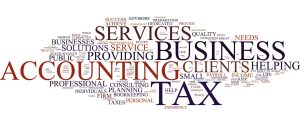May 15 How To File & Pay Business Taxes
Paying taxes isn’t the first thing that comes to mind for most budding entrepreneurs as they envision starting their own business. Just like the majority of the general population that tends to procrastinate thinking about and acting on their tax situation, there can be a tendency among business owners to avoid worrying about taxes. Many successful business owners understand, however, that control over a business’s tax situation is a crucial factor in achieving long-term, sustainable business success. In fact, through a little study and hard work, some business owners have even turned their tax process into an asset rather than a liability.
Often times, business owners don’t discover their unique formula for tax success until well into the lifespan of the business. These entrepreneurs were lucky to avoid the tax mistakes and simple tax oversights that are especially crippling for new and small businesses. The earlier a business learns the ins and outs of business taxes, the more likely they are to succeed. Learning about business taxes happens through trial and error, of course, but it can also be accelerated by understanding the available information. Because information is often only as good as the source that provides it, local business owners may want to consult with a New Jersey business tax service professional to better understand their unique situation. In the meantime, here is a basic overview of information that can help a small business effectively file and pay its taxes.

Classify Activities & Expenses
Perhaps the first distinction that must be made as it relates to small business taxes is whether the activity is a business or a hobby. While even the income one earns from a hobby is required to be reported on tax returns, the IRS looks at business and hobby income differently. Generally, if someone is trying to make a profit, then the income should be classified as business income. Once that’s determined, it’s important to keep track with detailed, accurate records—not only of the income, but also of the expenses. There are a wide variety of business-related expenses that can be deducted from the tax burden of small business owners. The more thorough an entrepreneur’s record keeping is in this regard, the easier it will be to claim deductions and to back them up in the event of an audit.
Federal Taxes
Small business owners need to be cognizant of a variety of potential federal tax obligations. Income tax, self-employment tax, estimated tax, employer tax and excise tax are all possibly relevant to a small business depending on the nature of the business. Because the business tax burden is so much more significant and complex than that of the individual, awareness and knowledge of how the tax code relates to the specific size, industry and type of a business is crucial. It helps to think of the tax process as interconnected: the better the expenses are kept track of, the easier (in terms of both time and money) it will be to cover all the taxes owed.
State Taxes
A small business’s state taxes are much more variable than its federal obligations. All small businesses must pay state income taxes. If a small business has employees, it also must pay state employment taxes—these include workers’ compensation insurance and unemployment insurance taxes. Certain states also require businesses to pay for temporary disability insurance. Because the state tax obligations vary state to state, it’s wise for business owners to consult with a tax professional experienced in the tax laws of their state.







